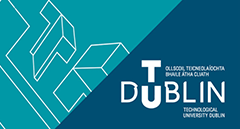Abstract
The practice of assessments in third level education is extremely important and a rarely disputed part of the university curriculum as a method to demonstrate a student’s learning. However, assessments to test a student’s knowledge and level of understanding are challenging to apply given recent trends which are showing that student numbers are increasing, student demographics are wide ranging and resources are being stretched. As a result of these emerging challenges, lecturers are required to develop a comprehensive assessment to effectively demonstrate student learning, whilst efficiently managing large class sizes. One form of assessment which has been used for efficient assessment is multiple choice questions (MCQs); however this method has been criticised for encouraging surface learning, in comparison to other methods such as essays or case studies. This research explores the impact of blended assessment methods on student learning. This study adopts a rigorous three-staged qualitative methodology to capture third level lecturers’ and students’ perception to (1) the level of learning when using MCQs; (2) the level of learning when blended assessment in the form of case based MCQs are used. The findings illuminate the positive impact of cased based MCQs as students and lecturers suggest that it leads to a higher level of learning and deeper information processing over that of MCQs without case studies. 2 The implications of this research is that this type of assessment contributes to the current thinking within literature on the use of assessments methods, as well as the blending of assessment methods to reach a higher level of learning. It further serves to reinforce the belief that assessments are the greatest influence on students’ learning, and the requirement for both universities and lecturers to reflect on the best form of assessment to test students’ level of understanding, whilst also balancing the real challenges of large class size teaching.
Creative Commons License

This work is licensed under a Creative Commons Attribution-NonCommercial-Share Alike 4.0 International License.
Recommended Citation
Donnelly, Christina
(2014)
"The Use of Case Based Multiple Choice Questions for Assessing Large Group Teaching: Implications on Student's Learning,"
Irish Journal of Academic Practice:
Vol. 3:
Iss.
1, Article 12.
doi:10.21427/D7CX32
Available at:
https://arrow.tudublin.ie/ijap/vol3/iss1/12
DOI
10.21427/D7CX32

